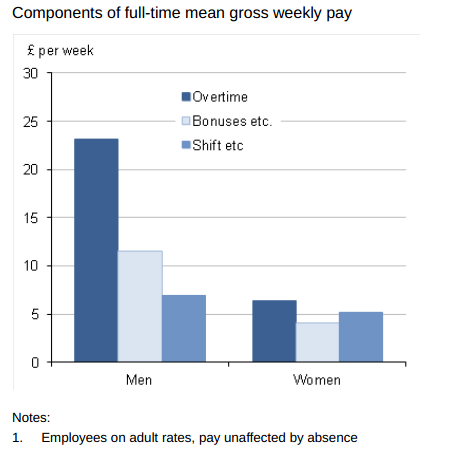Gender pay gap: How is Britain faring?
Forty-two years after the Equal Pay act was passed in parliament, female executives are losing just under £500,000 to their male counterparts over the course of their careers. At least, that much was being claimed across most news outlets earlier this week:
Telegraph: "A survey of 39,000 managers from the Chartered Management Institute shows a woman typically earns £423,390 less over her career as an executive than a man with the same job path, while men are paid £10,060 a year more on average."
Independent: "Female bosses get £15,000 less a year... and they're more likely to be sacked, too"
The story is based on a survey carried out by the Chartered Management Institute (CMI) and the human resources firm XpertHR. But pay gap statistics are regularly published by the Office for National Statistics' (ONS) Annual Survey of Hours and Earnings (ASHE), so why is such a study needed?
What did the report unearth?
XpertHR crunched the numbers by surveying salary and labour turnover data for 38,843 people 'in executive roles' in Britain. The research revealed that a woman taking up an executive job at the age of 25 and working until 60 would earn on average almost £1.1 million, compared with more than £1.5 million for men in identical careers.
This is a pay gap of £423,390 spread over a 35-year career, assuming women start their executive careers at 25. CMI specify that it defines 'executive' as anyone working at junior manager level through to board level at a company.
CMI's report also revealed how bonuses reflect the gender gap. A male executive receives in average £7,496 in bonuses, compared with £3,726 for a woman in the same role. Women aren't spared when companies have to resort to redundancies. In fact, 4.3 per cent of female executives were made redundant in the past year, 1.1 percentage points more than male bosses.
How does this compare with the national statistics?
Curiously, the ONS's 2011 Annual Survey of Hours and Earnings - based on a sample of employee jobs from HM Revenue and Customs' data - came up with slightly different conclusions to those found by CMI.
CMI determined that the annual gender pay gap among managerial roles stood at 25%. This compares with 10.1% across all job roles according to last year's ASHE.
More interesting is that according to the ASHE, if we look just at 'managers and senior officials', full-time gross earnings consist in average of £796.9 per week for men, but just £619.6 for women. That's a pay gap of 22.2%, similar but slightly lower than CMI's findings.
The ASHE also has figures on the gap in bonuses:

For every £11.50 men get in bonuses every week, a woman earns £4.10. So, in average men earn almost three times (180%) more than women in bonuses. It has to be said this gap in bonus awards is seen across all sectors of the workforce. At the executive level, the CMI came to a more generous conclusion: men earn roughly twice as much as women.
Why the differences?
It's important to note that the ASHE doesn't measure earnings over a lifetime, and so can't be used as a benchmark against which CMI's findings can be compared. This isn't a simple calculation either since income tends to rise over the course of a lifetime and retirement ages can differ - both of which would need to be accounted for.
CMI don't publish any details about how XpertHR's data was used to arrive at this lifetime figure, so its difficult at this stage to say how CMI accounted for these difficulties.
What the ASHE does show is that the relatively large pay gap in 'executive' roles isn't borne out across wider society as a whole, with the overall gap being at 10% - its lowest since records began.
In this instance, the Telegraph might have been better advised to be more specific in its headline than simply "women earn £500,000 less than men over working lives".
---
Flickr image courtesy of cali.org